Ten Books That Transformed Me
Some non-recommendations of Damned Good Books, with due apologies
Marco Giancotti,

Marco Giancotti,
Cover image:
Reading by the moon, Tsukioka Yoshitoshi
In September I published a piece titled You Don't Have Time to Read Books That Won't Change Your Life, where I talked about Damned Good Books, i.e. those that change your life. There are so many books out there with the potential to impact you deeply and remain with you forever, spanning every possible genre and goal. You incur a literal life-sized opportunity cost if you spend time reading forgettable books or books that you only feel you have to read. Of course, the first question that I got in response to that post was, what are my own Damned Good Books?
I realize that this is a very reasonable thing to ask. It even feels a little irresponsible to make bold statements like that without providing a list of recommendations. The thing is, the view of reading that I'm offering makes that very proposition almost impossible to fulfill. I always hesitate to recommend any book unless I know the recipient very well, because I see the act as an extremely low signal-to-noise form of communication, an exercise in failure.
I'll try anyway, with a constraint.
A Japanese literature youtuber I follow—that is, a Japanese guy who talks about world literature in front of a camera—often uses the term dokki (読機) which I like very much for its convenience. Dokki literally means "reading opportunity", but you could translate it better as "reading window" or "reading ripeness". It's the notion that there is an ideal time to consume a book, a period in which it is "in season", and that period (if it ever comes) is different for each person.
I think this phenomenon will be familiar to most people: a book that fascinated you in your youth may now appear insipid and uninteresting, while a book that you previously failed to see the point of might suddenly take you by storm.
That doesn't mean that the book itself has lost or gained in readworthiness. Even in retrospect, it was worth reading the former book back then when you liked it, and it wasn't worth reading the latter when you still didn't get it.
Familiar as it may be, I think this idea of a dokki is very much underrated and underused. The value gained from a reading experience does not reside only in the book itself, nor only in the combination of a reader with the book. Reading is an ecological act: the mutable context, history, and timing are everything, and the value of a book is relative to the myriad connections in place in the Universal Network at the time of reading.
Another way to see the same thing is through a black-box lens. A human mind is an opaque system, the precise workings of which are still largely unknown, but one thing is certain: it works based on a physical substrate and it obeys the laws of physics. When you're given an input—an image, a sound, a story—your brain processes it somehow and eventually produces some kind of action, or none. Whatever happens in that process will be based on the current structure of your neural network, the activation weights and rates of your thinking cells.
This structure inside the box changes over time, and that, in turn, will change how you process and react to a given input. Like a turnstile that gives way to a light push only after a coin has been inserted, you may need an input A—whatever it is—before you can accept and appreciate an input B.
A forest (to use a less mechanical metaphor), which would normally be indifferent to the feeble heat of a cigarette butt, will nevertheless be engulfed in an unstoppable fire if that same cigarette is dropped during a very dry season, after the forest has had time to accumulate plenty of dead wood fuel. Likewise, a mind will behave differently depending on its unique and ever-changing characteristics.
All this means that finding Damned Good Books is strictly the reader's job, not the reviewer's. Someone "recommending" a book can only share what a book did for them, and hope to be lucky enough to reach some readers for whom the book happens to be dokki. I am diffident of any claim about the absolute worth of books. Even an instructions manual for assembling a chair, or the shipping manifest of a cargo vessel, may be Damned Good Books for the right person at the right time in the right circumstances. It is not for the reviewer to assume one way or another.
Below I will share a list of ten (well, eleven) Damned Good Books of mine, but not as an answer to the question "what books should I read?" but "what does it mean for a book to change your life?" Most of these works are too famous to need recommending. You may have already read them all. And some of them are well past dokki for me as well. It is inevitably a very personal list, closely linked to my own life journey until now. For this reason, I will present them in the order in which I read them.
1. Michael Crichton - Jurassic Park
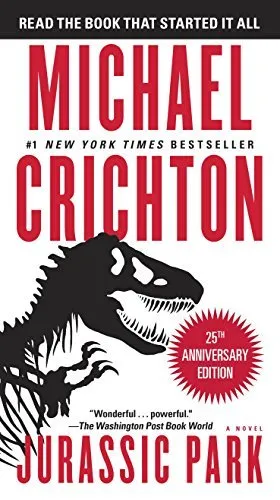
In 1998 I was a quiet 8th-grader in a US school. Overall I didn't like that school very much, but I liked that it had a well-furnished library set up almost like a bookstore. I already enjoyed reading back then, but I wasn't an avid reader yet. I wandered into the library one day, with no specific goal in mind, and my eyes fell on the cover of Jurassic Park. I immediately recognized it, because I had watched Steven Spielberg's film a few years before, and had loved it. I remember that the thickness of that book scared me a little. I had never read a 400-plus-page brick like that before, and I wasn't that good at English either. But the love for the movie must have helped, because that day I borrowed the book and unwittingly sealed my fate.
The thriller could not have been more dokki for me. Its English was easy enough to follow at my level, and it also happened to be the first page-turner in my life. For these reasons, it simultaneously taught me that reading can be addictive and extremely pleasurable, and gave me confidence in my English reading abilities. I would go on to read mostly books in English for the rest of my life.
Jurassic Park also planted a seed that was a long time germinating, because it was my first exposure to the scientific concepts of chaos and unpredictable living systems. These became major themes in my thinking as an adult.
2. J. R. R. Tolkien - The Lord of The Rings
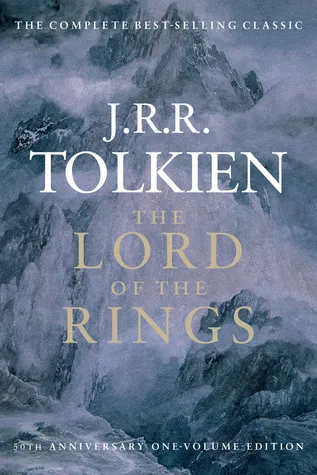
I first read the trilogy in my early teens, around the year 1999 or 2000, when I knew nothing about the fantasy genre or any other aspect of that geeky universe. By sheer luck, I read it right before the movies were released, so I was one of the last few to enjoy it in its purest, unspoiled form. It was quite an initiation.
LotR was never just an epic story for me. I liked the characters, and the narrative engaged me well enough to re-read the thing multiple times, but these books did something more for me, something that books like Jurassic Park had not done. LotR taught me what it means to create a world out of thin air. A world that feels deep and beautiful and independent in itself, regardless of the stories that enfold within it.
This awe at the power of imagination stays with me to this day. I've been a lifelong fantasy geek, and this subculture has been the cradle of many a friendship. But I also realize that my philosophical thought is indirectly affected by Tolkien's writings. This is not the blog post to delve into that topic, so I will only say that I believe imaginary worlds and physical laws to be no less "real" than what we treat as "reality".
3. Isaac Asimov - Extraterrestrial Civilizations and The Collapsing Universe: the Story of Black Holes
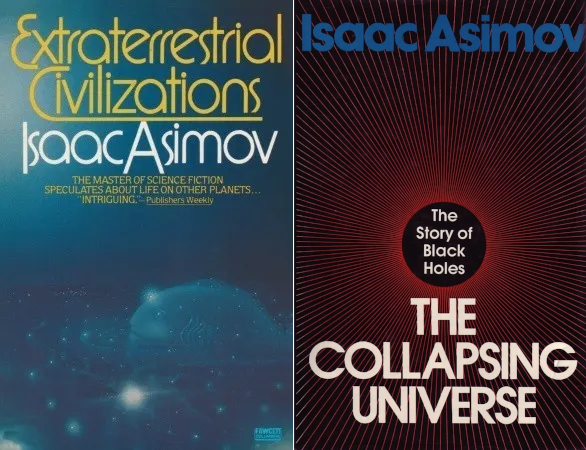
I read these two non-fiction books by Asimov when I was in high school, some time between 2001 and 2003, when I found them collecting dust in my father's library. By then, they were both over 20 years old and probably outdated in terms of scientific accuracy. Their accessible, exhilarating presentation of astronomy shook me anyway.
Extraterrestrial Civilizations is essentially a long, fun calculation of the odds of aliens existing somewhere in the Universe, probably following the approach of the Drake equation. The Collapsing Universe was all about the astrophysics of stars, neutron stars, and black holes.
I think I was lucky to read them when I did, because they were among the first non-fiction books I tried. They were so good that they must have imprinted in me a general liking—or at least a lack of dread—for non-fiction. The numbers and the scales that Asimov spanned in his passionate explanations irreversibly boggled my mind. I remember going around emphatically telling my family that a single teaspoon of a neutron star weighs six hundred million metric tons, and that the sun burns hundreds of millions of tons of hydrogen every second, and yet it still has enough in stock to keep burning for billions of years!
That excitement is what led me to pick physics and astronomy when it was time to go to university. After Asimov, I had no other choice.
4. Simon Singh - The Code Book
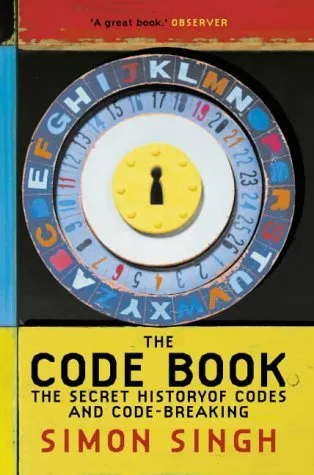
In the mid-aughts I was reading English-language non-fiction books in rapid succession. I had read and loved Singh's Fermat's Last Theorem, but it was with The Code Book that I really fell in love. This one broke a new personal record for non-fiction readability, surpassing even Asimov's books in terms of pure, popcorn-munching fun. This was Jurassic Park again, but about real science and technology.
The Code Book gave me the foundations of what I know about cybersecurity (useful in my later work) and encryption. I remember borrowing my parents' tools to build two wooden cypher disks—simple devices that you use to produce nearly unbreakable ciphers—and making my girlfriend learn how to use them, so that we could send each other encrypted messages. Yeah, I know.
More important, it sparked my fascination with computer science and programming, which I later pursued with a passion.
5. Alberto Gandolfi - Formicai, imperi, cervelli
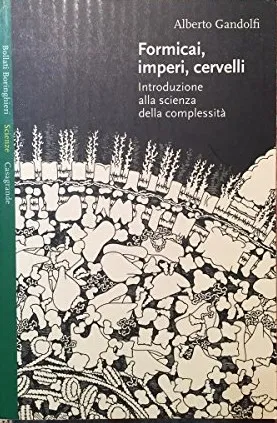
Never translated to English, this book is titled approximately "Anthills, Empires, Brains: Introduction to the Science of Complexity". It was written by a Italian mathematician and professor not especially famous to the Italian public. I don't remember how I found this book, but my father claims I asked for it as a gift when I was 20 or so. I must have sensed the dokki, somehow, because it was perfectly in season.
It talked about a kind of science that, unfortunately, no one was teaching me in my university classes. It was like a secret new dimension of nature, not limited to any previously named field of knowledge but encompassing everything, including concrete situations in daily life. Instead of strict laws of motion and quantum equations, this book expounded on order and chaos (which I remembered since Jurassic Park).
Judging by its lack of popularity abroad, Gandolfi's introduction may not have been the best book out there about complexity, but it was interesting enough to finish, and it did its job very well for me. The complexity science lens it gave me has been in front of my pupils for most of the following two decades, now more than ever.
6. Jorge Luis Borges - Fictions
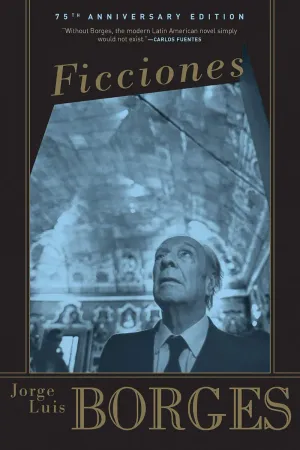
If fiction is lying, why not lie more sneakily, more convincingly than anyone else? This book shook my understanding of storytelling by doing things differently from all other authors. It showed me that a compelling story doesn't need to be always about characters or plot—it can be about ideas, even scientific ideas.
Borges' short stories are like many thought experiments, but they also land as koans for me. The Library of Babel, Funes the Memorious, Tlön, Uqbar, Orbis Tertius, and Pierre Menard, Author of the Quixote, among others, still haunt me and push me to the brink of difficult philosophical questions. I read it first in my twenties, just as early as I should have. It is possibly my favorite book to date.
7. Eiji Yoshikawa - Musashi
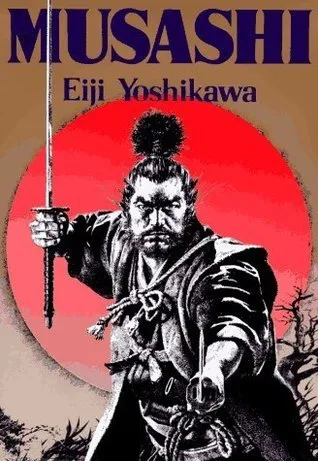
In 2006, when I read this historical novel, I was just beginning to learn the Japanese language and wished to immerse myself more in the country's culture. Unfortunately I wasn't able to read it in the original, which could mean that it was a bit premature for me. Then again, it really resonated with me at the time, and who knows if it would have been so powerful a few years later.
Besides being my first look at (a fictional) historical Japan—a charm that still attracts me today—this story worked on me at an emotional level like few others. It is about a kid who grows to become the greatest swordsman of all time. A run-of-the-mill coming of age story, but one that I needed at the time for its vision of a true strength that transcends the physical world. Musashi is already a formidable and brutal fighter at the beginning of the story. While his technique evolves as he grows, his real journey is internal.
Despite his many exciting battles against hordes of enemy samurai, the part that struck me the most was when he settles down for a long time to work as a farmer. This turns out to be surprisingly difficult, and it takes him months of painful trial and error to reach an epiphany that will help him far beyond growing vegetables.
The idea that the true warrior is a warrior of the mind helped me at a time when the future was uncertain and I struggled to decide what I wanted to dedicate my life to. If farming can help me grow into a top-class person, I have more options than I thought.
8. J. K. Rowling - Harry Potter and the Philosopher's Stone, Japanese Edition
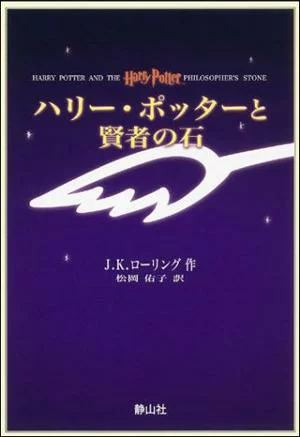
This is an unusual case, because the real dokki for this book came for me not the first but the second time I read it. My first reading, in my early teens, was pretty unremarkable. I guess I liked the book, because I went on to read the other ones, yet it didn't leave a special impression on me. But oh, was the second time a historic milestone in my life!
In early 2007 I felt that I knew enough Japanese to attempt reading an actual book in the language. After some consideration, I decided to go with the first Harry Potter book, because it was a book written for kids and because I knew already roughly where it would go, removing the stress of getting hopelessly lost along the way. That turned out to be an excellent choice.
At first it was excruciatingly difficult work. I would lay in bed for an hour or so before sleeping trying to read the thing, and I would spend most of the time looking up words in a dictionary. I was able to partially understand one sentence or two before growing too sleepy to continue. But the book was accessible and familiar, and I had a good amount of grit, so I kept going. Over the weeks and months that followed, my pace gradually improved. Instead of a sentence per hour, I was able to read half a page, then a whole page, then two. By the time I finished it, six months later, I was reading at a rate of almost 20 pages per hour, and I was actually enjoying it.
Put simply, this book held my hand as I trudged through the first and toughest step to Japanese reading fluency. It gave me confidence, and I never looked back.
9. Richard Dawkins - The Selfish Gene
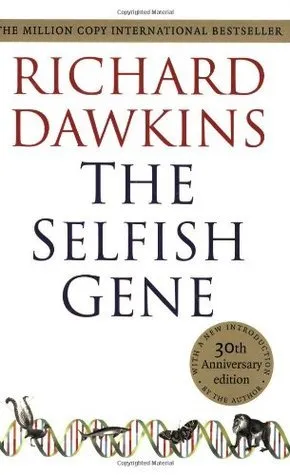
I read this book quite late, in 2012, and I'm glad I waited so long. By then I had absorbed a lot of science in my studies, and I had the basics of complexity science and game theory needed to interpret Dawkins' book. Reading it much earlier would have confused me, or it might have been too dense for me to handle. But in 2012 I was ready to devour The Selfish Gene, and it shifted my worldview once again.
Not only was this my true gateway to the wonders of biology and to a new level of reasoning about evolutionary processes (evolutionary game theory is a world of fun!), it also got me thinking for the first time about the power of framings. Scientific understanding is not only about looking at the facts and figuring out how they work, I realized. It is also about finding better ways to look at the same facts.
Dawkins' approach to genes has since been criticized by some, and perhaps it is true that he pushed his framing a bit too dogmatically. But I think those critics miss the unmovable value: framings are especially useful because you can change them based on your needs, and he provided us with a very useful option to use when we need it.
10. Donella Meadows - Thinking in Systems, a Primer
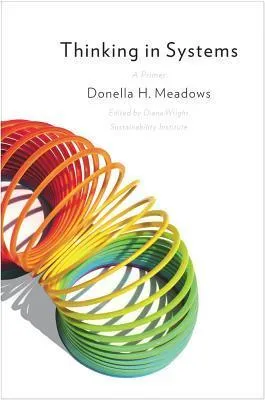
By the time I read this book, in 2020, I had a good implicit familiarity with system thinking. I had picked it up implicitly in my years of graduate-level physics and engineering, and Gandolfi's "complexity lens" had been my preferred way of seeing the world for some fifteen years already. What this book did was bring it all into clear focus with simple, intuitive mental models that are easy to reason and talk about. Meadows put this topic more succinctly and accessibly than anyone else in my knowledge, and in an endlessly quotable prose (she might well be the most quoted author in my writings).
This book is a guiding light for curious minds, and it gives me hope: ideas that today sound difficult to put to words might just be waiting for the right angle to frame them.
That concludes my brief selection. There are of course many more Damned Good Books in my life, but you get the idea. What is the common thread in all of these reading experiences? This might be different for another person, even if they read and liked the exact same books, but for me it seems to be a sense of wonder.
It was when I felt, viscerally, that my conception of what's possible was expanding, my horizons acquiring new and unexplored dimensions—that is when I knew I had a special thing going on. Each of these books literally restructured my mind, set me up anew for the events and the books that would come next, and shaped what I did and how I thought. They all felt like growth. That's what I mean when I say they were damned good. ●
Cover image:
Reading by the moon, Tsukioka Yoshitoshi
